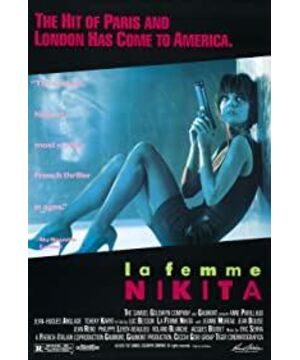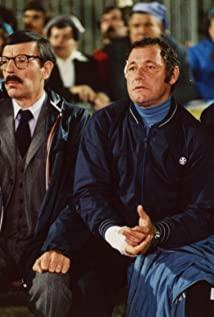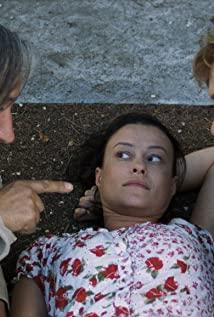So although I don't want to comment too much on the characters, I still have to mention a few. We see such a girl in the whole film, she is a little rebellious, hates her biological father, feels confused about life, but hopes to live and even love life. Such a simple or even innocent girl was forced to become an agent and a killer step by step by taking advantage of her desire for life. Killer, this profession sounds so cool, people's intuitive impression of killer may be the moment when Jean Reno was shocked in the climax of the film. There is a little bit of cuteness, but it is more cruel and bloodthirsty. However, Nikita doesn't look like a qualified killer at all - she trembled and shot with fear during the graduation mission, and returned to the base in a state of embarrassment; for the first mission, she was afraid except for fear; then, in Venice, she He shot with tears in his eyes while listening to his fiancé, Rico, through the door. She even nearly collapsed in the final mission, howling loudly, sympathizing with both the mission target who was supposed to be killed and the ruthless killer who was badly wounded.
This is not a qualified killer at all, and she is not cool at all. But this is how Nikita looks so cute. But no one should be the kind of killer people think they are. Our Nikita, she loves life and wants to live quietly in a small place more than anyone else. Maybe she would prefer to live in that small attic, with a cashier boyfriend, and occasionally a little surprise would happen in peace. that's enough. But the so-called mission code, "Gas is Black", has become a terrifying spell to break such a peaceful life. The things it represents always come so suddenly, so suddenly cruel. Before this code name, when Nikita was still living peacefully in the base, she put on makeup until five o'clock in the afternoon. She wanted to celebrate her birthday with her friend and boss, Bob, but was invited outside. . She did not receive any birthday present, but it was a so-called "graduation assignment". Such cruel facts usually come at the best of times later, after Nikita and Rico had a beautiful morning together, after they had toured the city of Venice together, the contrast between the warmth and cruelty was so stark , making people feel nothing more than distressed.
In the end Nikita chose to leave. Luc Besson uses an open ending here. But can Nikita really leave? After leaving the shackles of reality, can she obtain spiritual liberation? This makes the ending of "Nikita" thought-provoking-if you blindly pursue peace and comfort, and escape after being forced, can you get real liberation. It's this negativity that, on the other hand, accentuates the dark tone of Nikita. Throughout the film I saw violence and extremes, but in the end I saw a girl who yearned for the future and loved her life dying little by little. I clearly felt disgust and disapproval of violence. "Nikita" is different from all many of Luc Besson's past films. The image of the male protagonist Rico is thin like a shadow, but it is such a shadow that gives Nikita wholehearted love, he does not need a more three-dimensional image Now, this kind of love is enough for everyone to remember him.
I don't really want to comment on what kind of film "Nikita" is, I just want to thank Luc Besson for once again introducing me to such a beautiful and lovely sad girl. She has short hair like many girls in Besson's movies, she can fight very handsomely, and she looks so beautiful when she smiles. I saw her born and I wish she was gone.
View more about Nikita reviews










